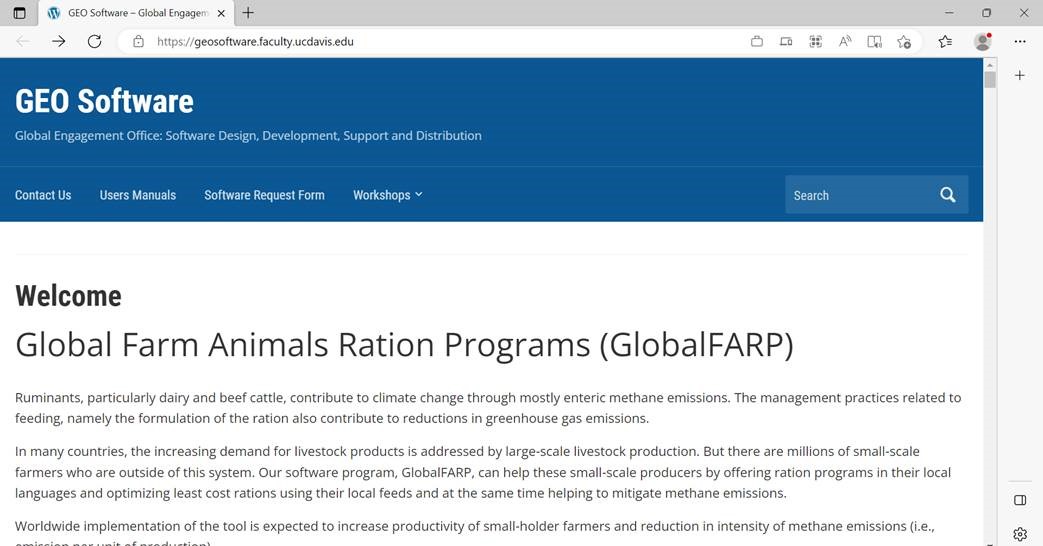 Ruminants, particularly dairy and beef cattle, contribute to climate change through mostly enteric methane emissions. The management practices related to feeding, namely the formulation of the ration also contribute to reductions in greenhouse gas emissions.
Ruminants, particularly dairy and beef cattle, contribute to climate change through mostly enteric methane emissions. The management practices related to feeding, namely the formulation of the ration also contribute to reductions in greenhouse gas emissions.
In many countries, the increasing demand for livestock products is addressed by large-scale livestock production. But there are millions of small-scale farmers who are outside of this system. Our software program, GlobalFARP, can help these small-scale producers by offering ration programs in their local languages and optimizing least cost rations using their local feeds and at the same time helping to mitigate methane emissions.
Worldwide implementation of the tool is expected to increase productivity of small-holder farmers and reduction in intensity of methane emissions (i.e., emission per unit of production).

